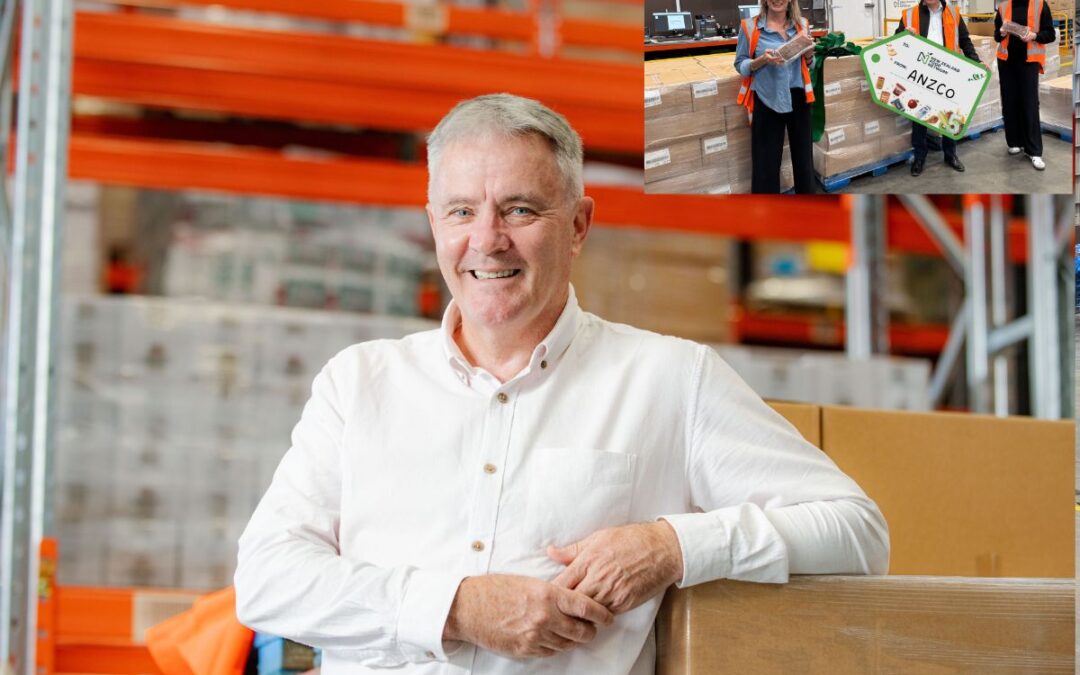
The New Zealand Food Network (NZFN) is celebrating five years of transforming Aotearoa’s food support ecosystem and supporting Kiwis in need – with a mammoth five tonne donation kicking off their Birthday Wishlist.
Since inception in July 2020, NZFN has been on a mission to redirect surplus and donated food (largely from the corporate and food production space) to its Food Hubs, which distribute it to recipient charities, social supermarkets, and other support groups tackling food insecurity on the front lines.
Birthday Wishlist
For their birthday month, NZFN’s one wish is for their donor partners to gift food and essential items from their 5th Birthday Wishlist – a list of the most-needed goods for its Food Hubs to stock foodbanks, community organisations and whānau pantries across the country.
This includes meat and fish, dairy, eggs, fruits and vegetables, hygiene products and more. The very first gift has been generously made by beef and lamb producer, ANZCO Foods, who has donated a whopping 5 tonnes of beef mince – with protein being one of the most in-demand items for Food Hubs.
That equates to 10,000 standard packs of mince, 40,000 meals, or 250,000 meatballs!
The mince is destined for NZFN’s recipient Food Hubs across the motu – 3 tonnes going to the Auckland distribution centre to service the North Island, and 2 tonnes going to the Christchurch distribution centre for the South Island.
ANZCO Foods Chief Executive Officer, Peter Conley, says the company is proud to contribute to the Wishlist and help ensure nutritious food reaches those who need it most.
“At ANZCO Foods, we see ourselves as more than a food producer. We’re committed to supporting the wellbeing of all New Zealanders, and that starts with access to quality nutrition. We’re proud to support NZFN’s Birthday Wishlist and help connect our premium beef mince to hungry families across Aotearoa.”
Fifty Tonnes Of Food
Since 2020, ANZCO Foods has donated almost 50 tonnes of food to support NZFN’s Food Hubs. The company also provides recipe cards in the food parcels to help families turn their beef mince into nourishing meals.
Over five years, NZFN has become integral to Aotearoa’s food support industry. They have:
- Distributed 35 million kilograms of food – that’s the equivalent of over 79 million meals
- Prevented 55 million kilograms of carbon dioxide emissions from entering the atmosphere
- Partnered with 64 Food Hubs who collectively serve over half a million people per month
Founded at the height of one of New Zealand’s worst hunger crises, Covid-19, NZFN had an urgent mission to quickly address the food insecurity sweeping through the population as unemployment, sickness and financial strain soared. It was set up in a matter of days with the support of Ministry of Social Development and helped tackle the dual issues of food insecurity and food waste through a collaborative national model.
But the efficiency of NZFN’s model has meant it has operated largely behind the scenes. Many people still don’t realise that their work is not only ongoing, but even more demanding today.
Food Insecurity Reality
Gavin Findlay, Chief Executive of the New Zealand Food Network, says, “Five years ago, we set out to help everyone access nutritious, high-quality food no matter who, or where they are. Thanks to the generosity of our amazing partners, the dedication of our Food Hubs, and the support of donors, we’ve been able to work towards building more food secure communities throughout the country.”
“Yet, food insecurity remains a daily reality for far too many Kiwis. The demand for support hasn’t eased since the pandemic – if anything, it’s grown as more families face rising costs and tough sacrifices every day. The work is far from done.”
NZFN’s fifth birthday offers a chance to reflect on how far the sector has come, and what’s next.
“We’ve cultivated a network of people and organisations who believe that no one in Aotearoa should go hungry – and this mindset of collaboration and helping one’s neighbour is something we need to take into the future,” says Findlay. “As we look to the next five years and the sector faces more adversity, we’ll keep calling on even more businesses, growers, and individuals to join the movement and help create a food-secure New Zealand.”

